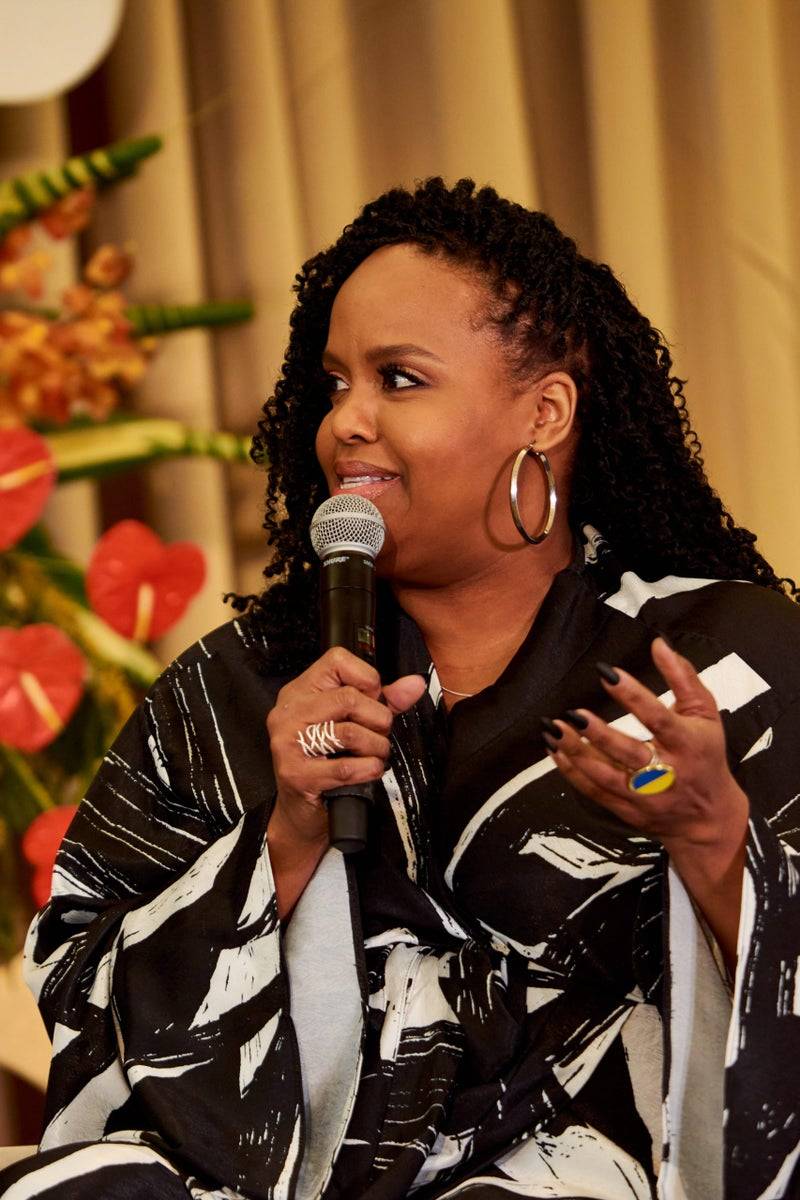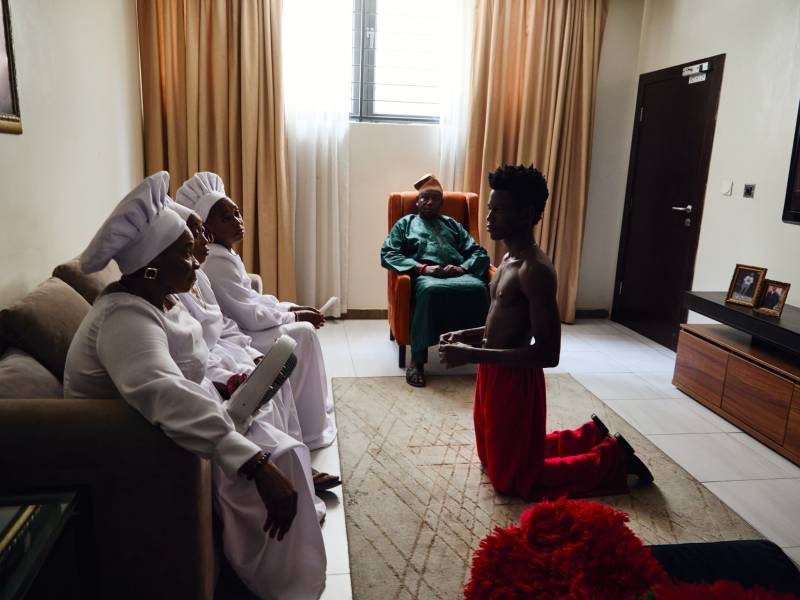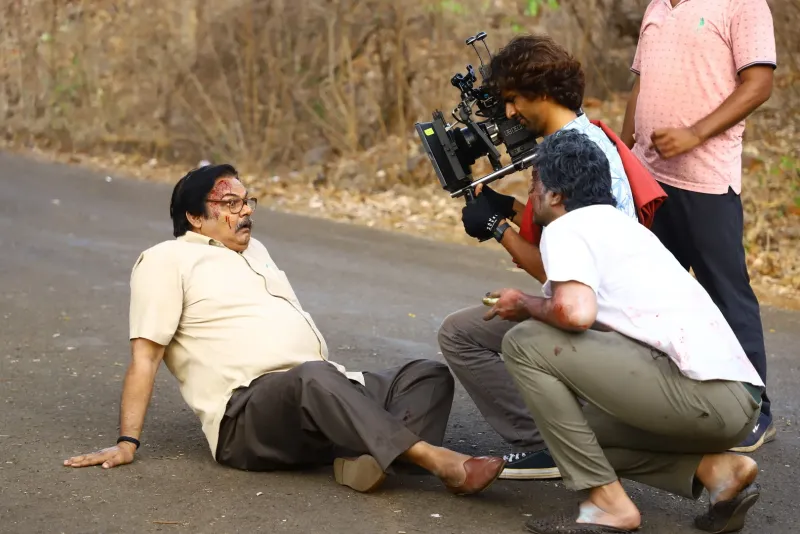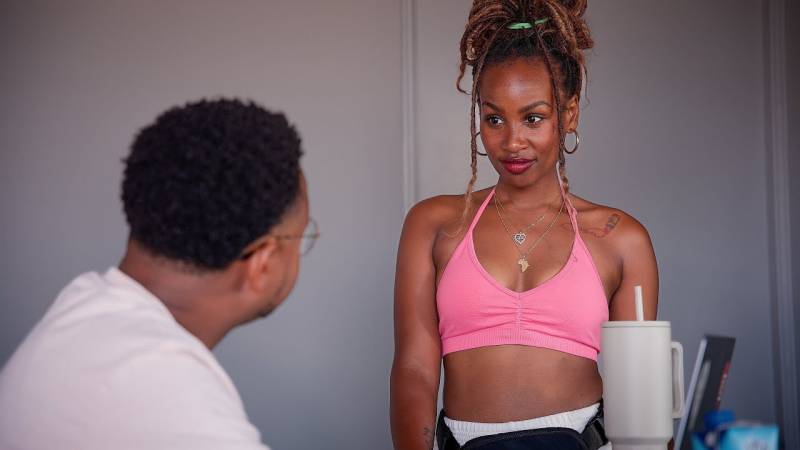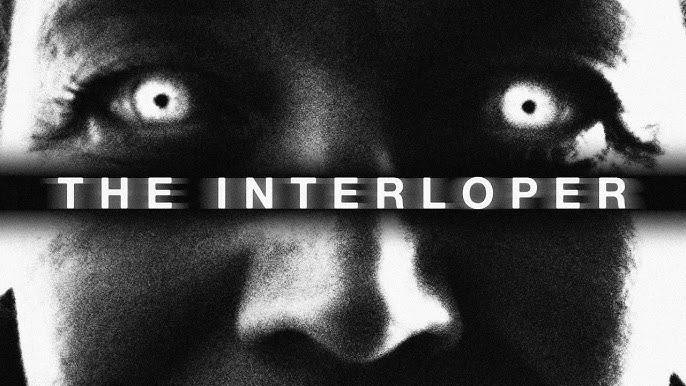Natasha Rothwell On Her Creative Selection Process: 'I Have An Eye For Stories Where The Humanity Of People Of Color Is Not Up For Debate'
A FEW TALENTED BLACK WOMEN BEHIND THE ONYX COLLECTIVE JOINED US AT ESSENCE HOLLYWOOD HOUSE TO UNPACK THEIR MISSION TO EMPOWER CREATIVES OF COLOR BY BEING INTENTIONAL.
During the 2022 ESSENCE Hollywood House, three of the talented ladies behind the Onyx Collective spoke about their roles in the Collective’s mission to create opportunities for Black women creators to helm projects that feature dynamic portrayals of Black women on screen.
As Onyx Collective VP of Documentary Programming Jihan Robinson; Writer, Producer & Actress Natasha Rothwell; and Executive Producer & Showrunner Raamlaa Mohamed joined ESSENCE Deputy Editor Cori Murray in conversation, they spoke in detail about some of the nuances of bringing these timely productions to life.
bringing these timely productions to life.
Responding to a question about her selection process when deciding which projects to align herself with, including Onyx Collective, Natasha emphasized the importance of narratives that don’t hyperfocus on justifying the humanity of characters of color.
“My rubric for taking on projects really is quite simple: Who is the center of that narrative and have we seen it before?” she said. “For me, I want to diversify how we’re perceived and to do that, we have to diversify the stories that we’re acquiring, that we’re writing, that we’re submitting, all of that. I also have an eye for stories where our humanity is not up for debate. Where we don’t spend act 1 of the pilot or the film screenplay justifying our existence as people of color, or fat, Black…whatever you are that may be perceived as “other” in an otherwise homogenous, white environment. Let’s not waste page real estate on that. Let’s start the title page with an assumption that we are human, worthy and deserving.”
Later on in the conversation, Jihan weighed in on what about their process of selecting new talent to build projects sets Onyx Collective apart.
“We believe that authorship matters in terms of storytelling,” she said. “And that, for so long, for communities of color and for underrepresented communities, our stories were sort of told in these binaries of our trauma, sub-human stories, or our superhero/excellence stories and none of the texture in between. And what we’re really trying to capture is that texture in between that we all know that we live in our everyday lives. We’ve seen other communities’ stories of their families, or their achievements, or their everyday, ordinary experiences amplified and we wanted a place for creators of color to say they want to make whatever they want to make.”
Raamla also shared the experience, importance and true value of having an all-Black writers room like the one she curated to work on her forthcoming project with Onyx Collective titled Reasonable Doubt.
“It’s very special because I feel like, when you’re a Black writer and you’re in a writer’s room that is either predominantly white or you’re one of a few, you often have to speak up as the Black writer to protect only the Black characters, and sometimes people look at you to be the “Black voice” in the room. But, when it’s an all-Black room, people actually get to bring in their experiences as humans and that adds to the humanity of the stories that we can tell…and it really lifts the weight off in the room.”
